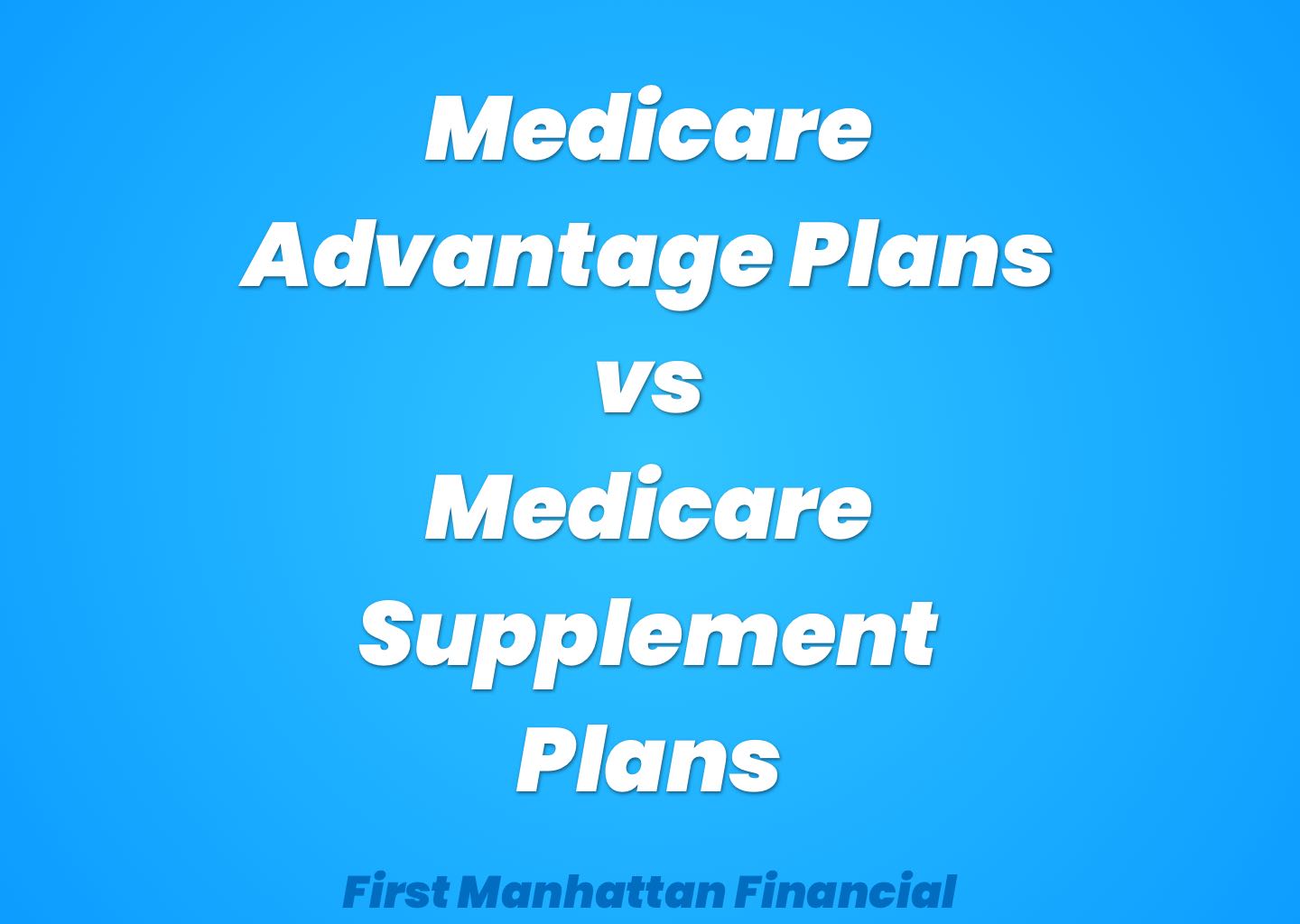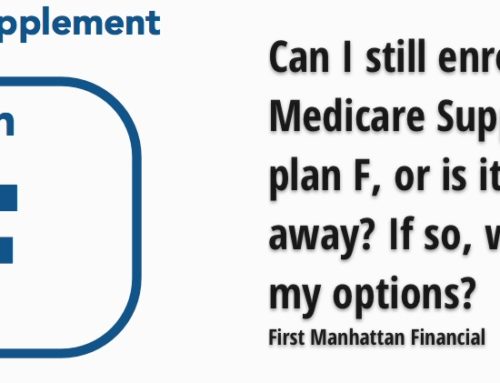The #1 question we get from clients new to Medicare or retiring, and are looking at options for secondary insurance is, what is the difference between a Medicare supplement (aka Medigap policy) and a Medicare Advantage Prescription Drug plan (aka Part C) plan?
Minor differences will exist in each regional market, but here we will discuss the general pros and cons of Medicare supplements vs. Medicare Advantage plans.
Network
With Medicare supplements, you generally have greater freedom with choosing your doctors, hospitals, or facilities. When you get Medicare Supplement Plan, your Medicare card (Original Medicare) is a primary insurance and Medigap is secondary.
By design, supplements cover you anywhere Medicare is accepted, this means any doctor or hospital that participates in Medicare, in all 50 states and US territories, without a referral. This access can be valuable for patients with rare or complex conditions, for example, as they may require a specialty doctor located on the other side of the country. The same goes for specialty hospitals.
- Relevant post: Memorial hospital and Medicare
On the other hand, Medicare Advantage plans; usually, an HMO or PPO managed care plan, are defined by 1) a service area, typically your county or city, and 2) a provider network, doctors or hospitals who have contractually agreed to accept this insurance at contracted rates. In this case, providers must be in your area AND be in your plan network for you to access. There are exceptions to this, such as PPOs, but those will be discussed separately.
When you chose the Medicare Advantage plan, it becomes primary, and you use only one card for your convenience. Lots of people, for some reason, think that by enrolling in the MAPD plan, you lose you Medicare. That is the wrong theory. MA plans must cover all benefits covered under original Medicare.
Despite this limitation in their service area and network, the good news is, more Medicare Advantage plans now are offering coverage during travel outside of local service areas. All Medicare Advantage plans cover Emergency rooms all over the world. As a specialist in NY state, we have programs that offer coverage outside of our state. Aetna and UnitedHealthcare are two insurers covering domestic travel at select states under some of their Medicare Advantage plans, making Medicare Advantage much more viable for frequent travelers or seniors with a second home in Florida. Aetna Medicare Advantage Prescription Drug Plans has a seamless network, which means you can visit Dr’s in the states where Aetna is Available. UHC has a Passport program, and you should contact their customer service if you are a member and turn on the passport program. With UHC MAPD plans, you can be in another state for nine months. Humana is also having benefits for Medicare beneficiaries that allows you to take the MAPD plan to another state and use it there. As a broker specializing in Medicare plans in Brooklyn, Queens, Manhattan, Staten Island, and Long Island, it is not very common we enroll our prospect in Humana plan just because of a bad network in NY. For some people, Humana may be a great fit, but for many people, it is not.
Cost
So far, we have discussed freedom and access, and Medicare supplements look attractive. But freedom and access come at a price, which for many seniors may be equally if not more critical consideration.
In the downstate New York area, the most popular Medicare Supplement plans cost $80-$310 monthly, before adding in prescription coverage, which will cost an additional $14 – $100 monthly. So, in total, expect to pay $220-$550 per month for your hospital, medical, and prescription coverage. Medicare Advantage plans, on the other hand, range from $0 an up monthly in this area, including prescription coverage. That is a significant savings in upfront premiums.
Lots of our clients ask us why an insurance company would cover us for FREE? The answer is simple. All MAPD plans are contracted with CMS. In simple language, the program does not cost you, but it cost Medicare, who pays the lump sum every month for you to have it. CMS pays Private Insurance Company, and the company covers you.
For someone in good health, who sees their doctor once or twice per year, does their routine preventive screenings (colonoscopy, mammography, etc.), and has few conditions requiring a specialist, Medicare Advantage makes a lot of sense. You will save a lot in monthly premiums, and not incur as much copayment as someone with many medical issues. Basically, with the MAPD plan, you pay as you go.
On the other hand, if you do see many doctors, or had a recent event such as hospitalization or rehabilitation, it pays to sit down and do some math. Copayments can add up quickly, for example, if you require skilled nursing rehab, or have frequent bouts of hospitalization.
Here at First Manhattan, we can do that math with you (at no cost to you!) when you book an appointment to see one of our experienced agents. We will examine your needs and budget, and revisit with you every year during the Annual Enrollment Period to reassess your plan because we know that life doesn’t stay the same, and insurance plans don’t stay the same.
Additional Benefits
So far, we went over the top two distinctions between Medicare supplements and Advantage plans: network and cost. But no less significant for many seniors, are benefits such as dental, vision, hearing—all considered “additional benefits” not covered by Medicare.
As a rule, Medicare supplements will not cover anything not covered under original Medicare. This means no dental, routine vision/eyewear, hearing test/aids, and. In contrast, many Medicare Advantage plans now offer some dental, vision, etc., to make Medicare Advantage plans more attractive to consumers. Typically, the coverage is minimal, but it is a step up from no coverage at all.
Rx
As briefly mentioned above, all Medicare supplements do not come with prescription coverage. Beneficiaries must purchase a Stand-Alone Prescription Drug Plan (Part D if they choose a Medicare supplement.
Many Medicare Advantage plans, on the other hand, do include prescription coverage, making it an all-in-one solution in many senses.
Conclusion
We hope this post has been enlightening about Medicare supplemental insurance without being overwhelming. We summarized the four most significant distinctions between Medicare supplements and Medicare Advantage plans, the source of many confusions among seniors looking for suitable coverage to supplement Medicare.
The great news is you don’t have to do it alone! Our agents here at First Manhattan are ready to guide you via the office, home, or phone appointments. Give us a call or send a request.





